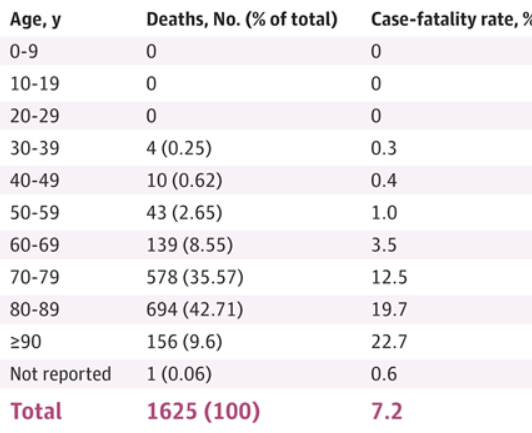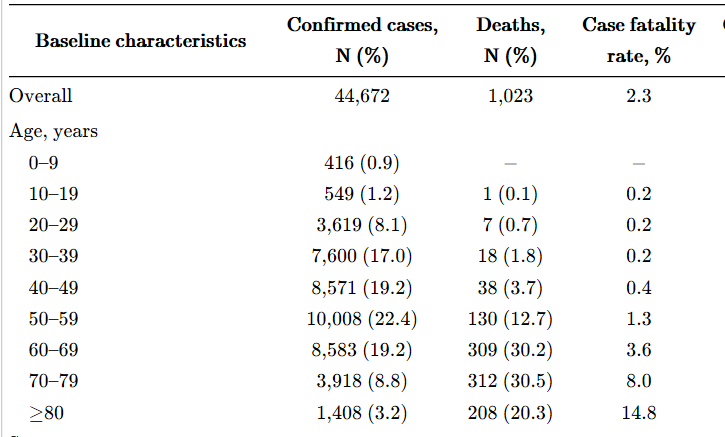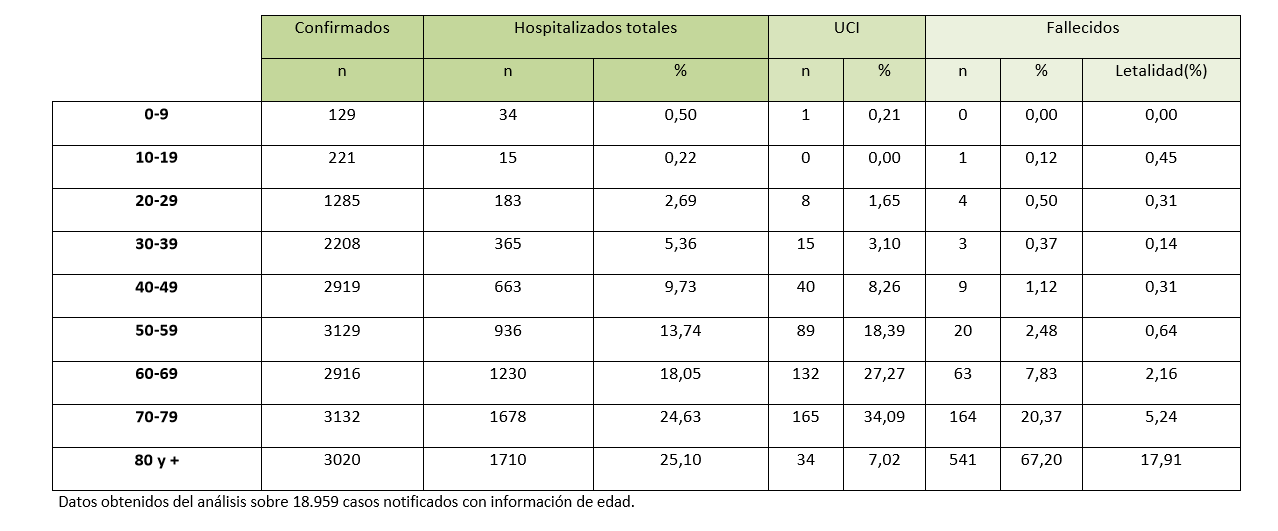There is a dire need for suitable responses to the outbreak of coronavirus pandemic for older people living in low- and middle-income countries such as Pakistan.
In the limited time since the outbreak of this untreated virus, COVID-19, one aspect is very clear: the risk of dying from it is higher for older age persons. A particularly high-risk group is constituted by those aged 80 or more.
There is no evidence yet that older people are significantly more likely to get infected from this virus than younger people. But when older people are infected, they are much more likely to have a life-threatening condition, even amongst those whose general health is good.
A study of more than 44,000 patients carried out by the Chinese Centre for Disease Control and Prevention has confirmed that the death rate from coronavirus grows drastically with age. Amongst the diagnosed cases of coronavirus in China, a death rate of nearly 15% is observed for those who are aged 80+. For those younger than 40, it is substantially lower (see note and tables at end of blog*).
The mortality risk of those infected is also found to be particularly high for those with chronic conditions such as pulmonary hypertension and other cardiovascular disorders. Experts say that some of the risks can be attributed to a weakening of the immune system with age.
This leaves older people and their families wondering what extra precautions they should take. Several best practices have been recommended by gerontologists, geriatricians and infectious diseases specialists.
Is it too little too late?
A dedicated webpage has also been created by an online volunteer community of academics, experts and practitioners who are highlighting the disproportionate risk of coronavirus for older people living in low- and middle-income countries.
A recent editorial in the British Medical Journal (BMJ) highlights serious concerns of the impact of coronavirus on older people living in low- and middle-income countries like Pakistan.
Alzheimer's Disease International (ADI) brings together news, resources, stories, advice and support for anyone affected by dementia. A new webpage of the ADI has been devoted to resources relating to the coronavirus, to be updated on a regular basis.
HelpAge International is in contact with older people regarding coronavirus through its national network members. In the short time since the outbreak, they have rolled out programmes in local languages to inform older people about how to protect themselves.
However, lack of specialized provisions and protection have already paid a heavy toll on lives of older people infected by this terrible virus in Italy and Spain.
It may still be possible to raise awareness and develop suitable interventions in countries where the virus has just started to spread. It will save lives of many of our elders by reducing the infection rate and improving their ability to fight out the effects of this virus on their quality of life.
Why the situation is particularly worrying in Pakistan?
In Pakistan, the awareness about the rights of older people is poor! Pakistan is one of only 15 countries worldwide with over ten million older people. It is estimated that currently seven per cent of the population (about 14 million) is over 60 years old.
A rising life expectancy means that the population of older people in Pakistan has been rising fast, reaching 16% or 44 million persons of age 60 or more by 2050. The health crisis triggered by coronavirus can isolate older people and the risk of this happening is far higher in the underdeveloped healthcare system of Pakistan.
Why do older people in Pakistan require special services? First and foremost, in the drive towards containment, it is often difficult (if not impossible) to isolate older persons from their families. Given the traditional family ties and extended family system, older people can only be insulated within the family home and that may not be possible for low income families. This is particularly challenging in urban low-income settings where large families live in small dwellings.
It is also customary for our older persons to embrace younger members, a tradition which carries a high risk of the spread of the virus. The best form of the social engagement for many of them is congregational daily prayers in the mosque and it is a religious taboo to restrict them from such gatherings.
Their movement to separate quarantine facilities will also require extra diligence as they are often illiterate and heavily dependent on their younger family members. They may face barriers to obtaining food and other essential supplies if quarantine conditions become scarce or more widespread.
Another problem is the ability of the health system to cope with surges in demand for those needing respiratory support and those with physical mobility constraints. Even at normal times, our public health system in Pakistan face severe capacity constraints in providing specialized geriatric care, such as availability of ventilators. Although extra efforts are currently being made to get new equipment, our medical services are unlikely to be able to offer the care needed in a speedy outbreak of the virus, as observed in China, Italy and Spain.
Older people need to know about their increased risk to make informed decisions about how to protect themselves. The local administration should bear in mind that a large number of older people in Pakistan are illiterate. Thus, awareness campaigns may not be equally effective to target older people unless designed exclusively for them. An older age perspective should be included explicitly in all efforts to contain spread of coronavirus.
Finally, there is a considerable risk that the effect such contagious virus may cause a collapse in older people’s social positioning and enhance age-based discrimination. This epidemic should make us realise even more that there is no place in the society for those who stigmatise against older people.
The containment and treatment of coronavirus victims require specialized public health and clinical responses for older people. Yet, up until now, no specific guidance has been put forward for this high-risk group, not just in poorly resourced country such as Pakistan but also in many developed, high income countries.
An expert group on older people should be formed at the National level in Pakistan to prepare specialized responses for the disaster management. As new knowledge emerges, this group can identify and evaluate effective treatments and interventions that address the particular needs of older vulnerable groups in Pakistan.
* Age distribution of COVID-19 cases and deaths in Italy, China, and Spain
Data on the age distribution of COVID-19 cases and deaths for Italy up to Mar 15th (22512 cases) was recently published in JAMA.
75% of confirmed cases have been individuals aged 50+, with 37.6% of cases aged 70+.

Data for China up to Feb 11th was reported by China’s CDC in February
In Wuhan 66% of the confirmed cases were aged 50+, but only 17.6% were aged 70+. For China as a whole the age distribution was even younger (12% aged 70+). The overall death rate in mainland China was 2.3%.

Data for Spain up to Mar 22nd was reported by the Ministry of Health on 23rd Mar.
In Spain 64% of the confirmed cases to date have been aged 50+, with 32% aged 70+. Hospitalization rates among the older (70+) patients were high - around 25%. Case fatality (letalidad) among confirmed cases at all ages was 6%.

NOTE. It has to be remembered not only that case fatality rates can (and do) vary from country to country change, but that they are likely to change over the course of an epidemic (as more evidence becomes available). What is particularly important here is the estimate of the total number of people infected with the virus - the denominator for the estimate of the case fatality rate. The numbers of actual cases is likely to be much higher than the number of confirmed cases - which itself depends on the testing regime adopted in a given country.
About the Author
Professor Asghar Zaidi is a Senior Research Fellow at the Oxford Institute of Population Ageing. Asghar Zaidi is Vice Chancellor at Government College University Lahore (Pakistan) and Visiting Professor at London School of Economics and Political Science, London.
Comments Welcome
We welcome your comments on this or any of the Institute's blog posts. Please feel free to email comments to be posted on your behalf to administrator@ageing.ox.ac.uk or use the Disqus facility linked below. Her dissertation focuses on demographic change, intergenerational justice and participation.
Opinions of the blogger is their own and not endorsed by the Institute
Comments Welcome: We welcome your comments on this or any of the Institute's blog posts. Please feel free to email comments to be posted on your behalf to administrator@ageing.ox.ac.uk or use the Disqus facility linked below.












